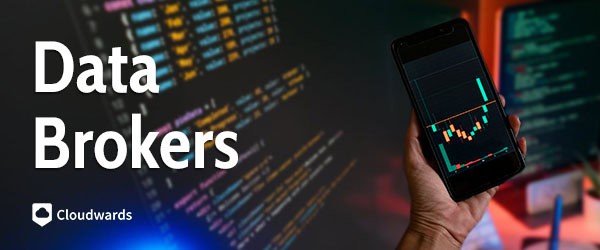Why Your Morning Coffee Order Is Being Sold to Insurance Companies (And 500 Other Buyers)

This Deep Dive was originally sent on September 5th, 2025.
Remember that time you Googled “how to get rid of a dead body” because you were writing a mystery novel, or researched “suspicious moles” at 2 AM during one of those WebMD spirals that convinced you that a freckle was definitely melanoma?
Yeah, well… someone’s selling that information.
And before you think, “Well, I use incognito mode” or “I clear my cookies,” let me break it to you: that’s like wearing sunglasses to rob a bank. Sure, it makes you feel sneakier, but the security cameras are still rolling.
While you’ve been worrying about Facebook and Google knowing your business, there’s an entire shadow industry of companies you’ve never heard of that have been quietly building digital dossiers on you that would make the NSA jealous.
These companies are called data brokers, and they’ve turned your personal information into a $390 billion industry [1].
They know if you’re pregnant before you tell your family, if you’re having financial troubles before your bank notices, and they can predict your political leanings based on whether you buy organic groceries.
The really uncomfortable part? Most of this is completely legal, and you probably gave them permission without realizing it.
While everyone’s been focused on “Big Tech” privacy violations, the data broker industry has been operating in plain sight, creating the most sophisticated surveillance apparatus in human history, and selling access to it for pennies per person.
If our comprehensive anonymous browsing guide has taught us anything, it’s that staying truly anonymous online requires understanding just how deep the tracking rabbit hole goes.
So join me as we explore the companies that know your secrets, how they’re turning your digital exhaust into profit, and why your morning routine is worth more to strangers than you might think.
They Know More Than You Think
Data brokers don’t just know your name and address—they’ve constructed detailed psychological profiles that would make your therapist uncomfortable.
Cybersecurity experts estimate that data brokers collect an average of 1,000 data points on each individual with an online presence [2]. Here’s what that looks like in practice:
- Basic Identifiers: Your full name, current and previous addresses, phone numbers, email addresses, and social media handles. This is just the foundation.
- Financial Intelligence: Your credit score, payment history, estimated income, debt levels, spending patterns, and what the industry calls “financial stress indicators”—basically, signs that you’re struggling with money and might be vulnerable to certain offers.
- Purchase Archaeology: Every transaction you’ve made with a credit card, every loyalty program swipe, every online order. They know you buy organic food but cheap toilet paper, that you’re a sucker for late-night Amazon purchases, and that you splurge on coffee but drive a 10-year-old car.
- Health Inference Data: While medical records are protected, data brokers build health profiles based on your searches, pharmacy loyalty cards, fitness app usage, and even the medical facilities you visit. They can predict depression, diabetes risk, and pregnancy with startling accuracy.
- Behavioral Patterns: Your sleep schedule (based on device usage), commute patterns, shopping habits, entertainment preferences, and social connections. They know if you’re a night owl, if you work weekends, and how often you actually go to that gym you pay for.
- Political and Social Profiling: Your voter registration, donation history, social media activity, and what they call “lifestyle indicators”, meaning everything from the magazines you subscribe to, to the protests you’ve attended.
One study by the FTC covering nine brokers (Acxiom, CoreLogic, Datalogix, eBureau, ID Analytics, Intelius, PeekYou, Rapleaf and Recorded Future) found one of them holds information on more than 1.4 billion consumer transactions and 700 billion data elements, while another adds more than 3 billion new data points to its database each month [3].
🔒This is where the free preview ends.
Join thousands of professionals who get the complete story
Our Deep Dive subscribers rely on these investigations to stay ahead of emerging threats and make informed decisions about technology, security, and privacy.
✅ Complete access to this investigation
✅ All future Deep Dive reports
✅ Searchable archive of past investigations
✅ No ads, no sponsored content
✅ Cancel anytime